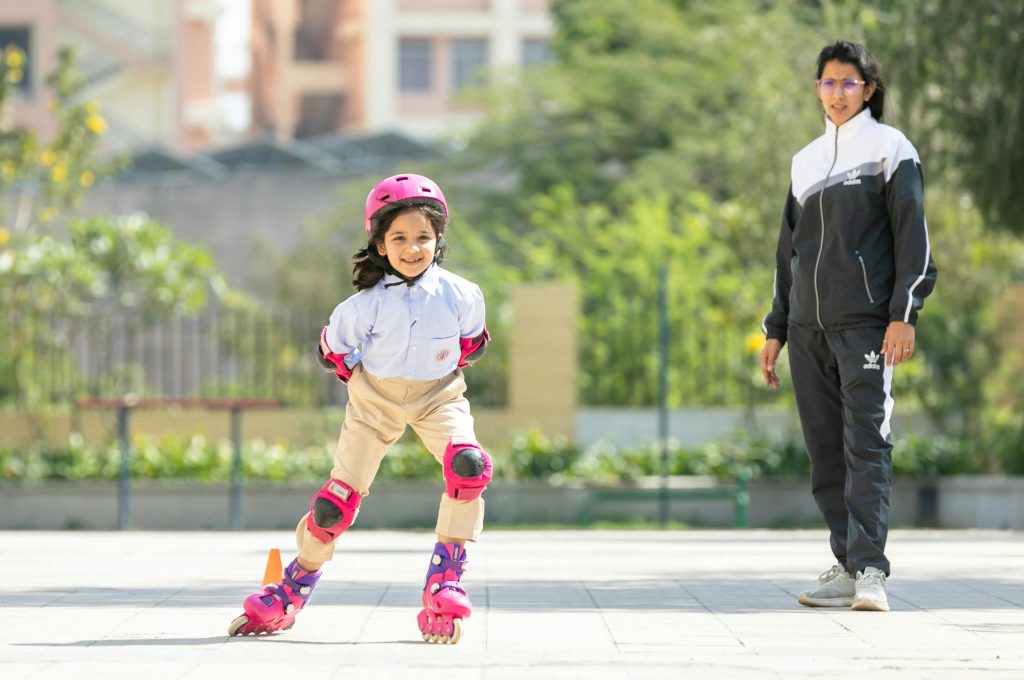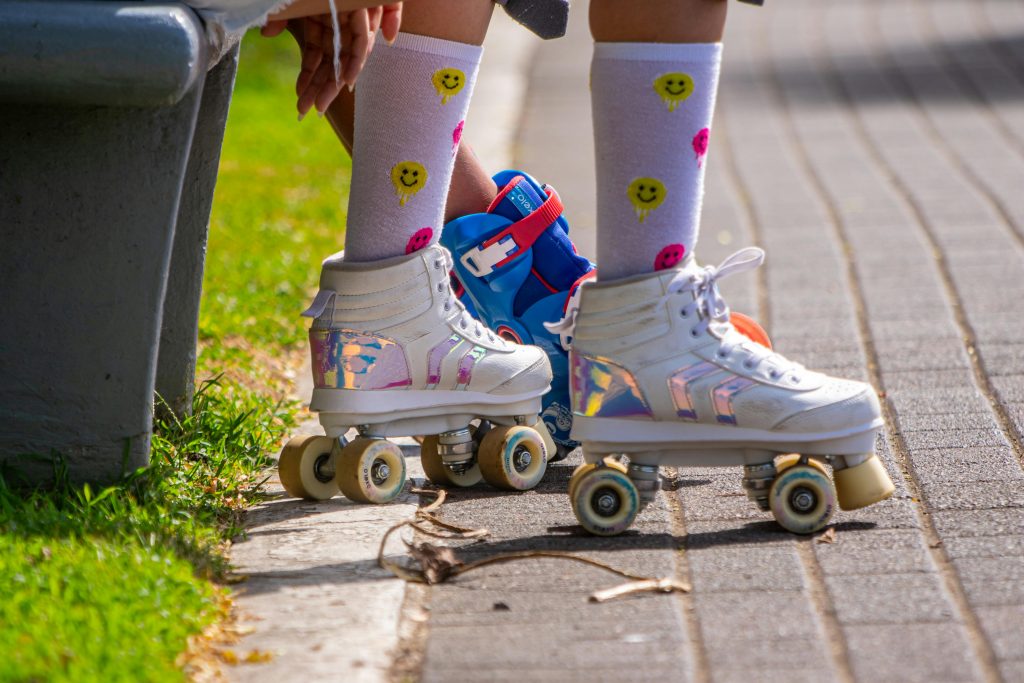We all know roller skating is fun, but did you know it’s also good for your brain? That’s right, rolling around the rink isn’t just a great way to stay active; it’s also a boost for your mood, coordination, and mental clarity. Science says so!
We see it all the time: once those skates hit the floor, something magical happens. Smiles get bigger, stress melts away, and everyone from first-timers to pros leaves feeling just a little bit lighter.
So let’s break it down: what’s really happening inside your head when you’re cruising around the rink?
 Skating Is A Brain Booster
Skating Is A Brain Booster
Roller skating combines movement, rhythm, balance, and coordination, which lights up multiple parts of your brain at once. This full-body activity strengthens neural pathways, especially those tied to focus and memory. Pretty cool, right?
Feel-Good Hormones On The Move
Skating gets your blood pumping and triggers the release of endorphins and dopamine, those natural feel-good chemicals that lift your mood and reduce stress. That’s why even a quick skate session can leave you feeling energized and happy. Yes, it’s basically science-backed joy on wheels!
Builds Balance And Brain-Body Connection
Skating challenges your balance and coordination, which sharpens your brain’s ability to process movement. It’s a great workout for your cerebellum (the part of your brain that controls motor skills), and it’s especially helpful for developing kids or adults looking to stay sharp.
Skating Together Is Brain And Bonding
Group skating strengthens social bonds, which helps reduce anxiety and boosts self-esteem, especially for kids and teens. It’s a win-win: exercise and community mean healthy minds and happy hearts.
 Ready to give your brain a boost in a fun way?
Ready to give your brain a boost in a fun way?
Check out our skating schedule and plan your next visit to Rainbow Skateland.
Don’t forget to follow us on Facebook to stay updated on themed nights, wellness tips, and all things skating fun in Lockport, NY!
Because who knew neuroscience could be so fun? Grab your skates, get rolling, and let your brain (and your body) thank you later.
Leave a Reply